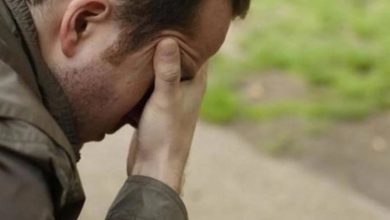The Thrill of Fear: Understanding Our Fascination with Horror and Suspense
The Psychology Behind Seeking Fear: How Horror and Thrill-Inducing Activities Impact Our Emotions and Well-Being.

Watan–For some, simply thinking about watching a horror movie or experiencing a thrill at an amusement park seems unsettling and far from any form of fun. There are those who can’t even watch a scary scene on screen without hiding behind a pillow.
On the other hand, there are those who find genuine pleasure in intentionally provoking fear within themselves. For them, these moments represent the peak of excitement and suspense, as if they enjoy deliberately scaring themselves!
To begin with, we must understand that fear is a natural and fundamental human emotion that plays a vital role in protecting people from surrounding dangers. Although it is often linked to negative feelings like anxiety and stress, many people actively seek it out through various means, such as horror films, dangerous games, or scary novels.
So what drives some people to seek fear voluntarily? And how can it affect their psychological and mental state?
To answer these questions, a deeper understanding of our relationship with this primal emotion and its various impacts is required.
What happens when we feel fear?
When a person encounters a frightening situation, the body quickly responds through a system known as “fight or flight,” a survival mechanism triggered by the brain through hormones like adrenaline and cortisol.
This response leads to an increase in heart rate, higher energy levels, and greater focus. According to studies, this response was crucial for human survival as it allowed us to escape predators or deal with natural dangers.
Does fear take us back to our roots?
Artificial fear, such as in horror films or dangerous games, allows us to activate our innate defense responses within a safe environment. During these experiences, we rediscover the ancient warning mechanisms that once alerted our ancestors to surrounding dangers.
Additionally, these experiences revive the spirit of adventure and exploration that was part of ancient human life, enhancing our emotional and physical understanding of ourselves.

Why do we seek fear-inducing situations?
Fear-inducing activities, such as visiting haunted houses or skydiving, allow us to experience high levels of excitement within a controlled environment. When the brain realizes that the danger is not real, it releases hormones like dopamine that enhance the feelings of happiness and reward.
These activities also provide opportunities to strengthen social bonds, as they foster connections between individuals through shared frightening experiences. Furthermore, such situations help us explore the limits of our personal abilities and boost self-confidence.
Does feeling fear have psychological benefits?
A scientific study published in Scientific American suggests that artificial fear can be an effective way to reduce stress and promote relaxation after the experience ends. Realizing that the threat we faced was not real boosts positive mood and encourages positive thinking.
These experiences also help individuals build psychological resilience and cope with difficult situations in their everyday lives.
On the other hand, some people do not find any enjoyment in this type of excitement, and this is due to several reasons, including the brain’s response. Some people release less dopamine when feeling fear, which diminishes their sense of excitement.
People who suffer from anxiety or have had negative experiences in the past may avoid these activities entirely.
The key difference between beneficial fear and harmful fear lies in an individual’s perception of whether there is a real or imaginary threat. While adults enjoy the thrill of horror experiences in a safe environment, caution must be taken when presenting frightening content to children who may struggle to distinguish between fantasy and reality.
Ultimately, fear remains an essential part of the human experience. It is an emotion that can be used to discover oneself, strengthen social bonds, and reduce stress, as long as it is experienced in safe and thoughtful contexts.
Whether you are a fan of horror or prefer to stay away from it, this emotion has a profound impact on our understanding of the world and ourselves.




